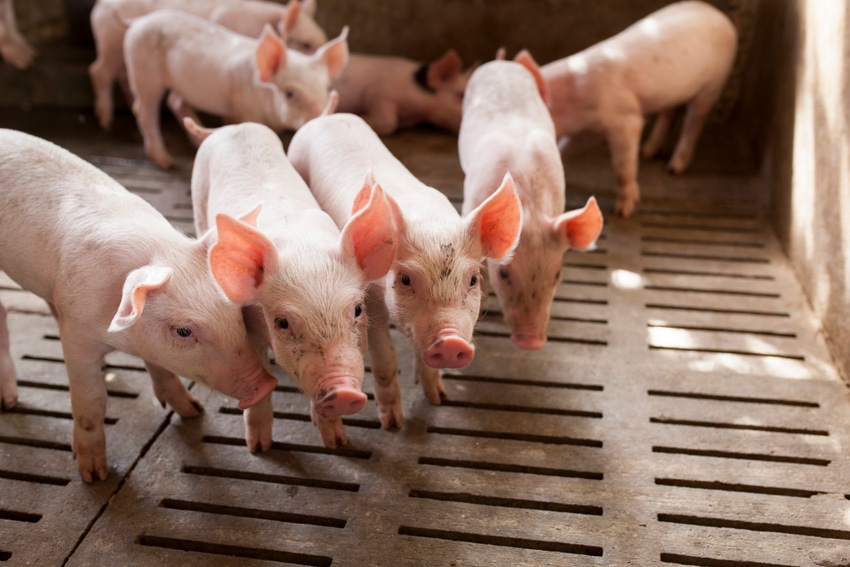Grant to investigate links between swine microbiome, PRRSV
Alternative PRRSV control strategies needed to maintain swine health while lessening disease's economic effects on pork producers.
August 19, 2020

Kansas State University researcher Megan Niederwerder has been awarded a $500,000 grant to examine the swine microbiome to control porcine reproductive and respiratory syndrome virus (PRRSV).
Niederwerder, an assistant professor of diagnostic medicine and pathobiology in the Kansas State College of Veterinary Medicine, is the project director on the three-year grant from the U.S. Department of Agriculture's National Institute of Food & Agriculture for "Assessing the Microbiome as a Tool for the Mitigation of Viral Disease in Nursery Pigs."
"The disease caused by this virus often involves secondary bacterial pathogens and results in polymicrobial lung infections, which exacerbate respiratory disease and increase antimicrobial administration in young growing pigs," Niederwerder said.
Although commercial vaccines are used to reduce the effects of PRRSV on swine health, Niederwerder said currently available vaccines are generally considered inadequate for disease control. She said alternative strategies for PRRSV control are needed to maintain swine health and welfare while lessening the economic effects of this disease on pork producers.
"The goal of our work is to investigate the gut microbiome as a novel tool for PRRSV control due to its impact on the immune system and nutritional outcomes after infection," Niederwerder said. "We plan to investigate the effects of microbiome modulation on the outcome of swine with respiratory disease and identify what beneficial microbes are associated with improved health. We anticipate the data generated in this project will allow us to characterize and determine the gut microbes that improve pig health in the presence of PRRSV."
Niederwerder hopes to determine how beneficial gut microbes may be used as a preventative medicine tool to reduce the effects of respiratory disease and decrease the need for antimicrobials in swine, the announcement from Kansas State said.
"As we continue to discover how gut microbes communicate with the lungs and influence the response to pathogens causing pneumonia, the gut microbiome provides an opportunity to improve swine health and welfare, lessen the economic losses to producers associated with PRRSV and reduce the risk of antimicrobial resistance in swine," Niederwerder said.
"Ultimately, use of the gut microbiome to improve respiratory health and growth of livestock is an emerging and exciting area of study. With a need to increase production efficiency and provide food for a growing world, the gut microbiome represents tremendous potential in animal agriculture," she added.
You May Also Like


.png?width=300&auto=webp&quality=80&disable=upscale)
